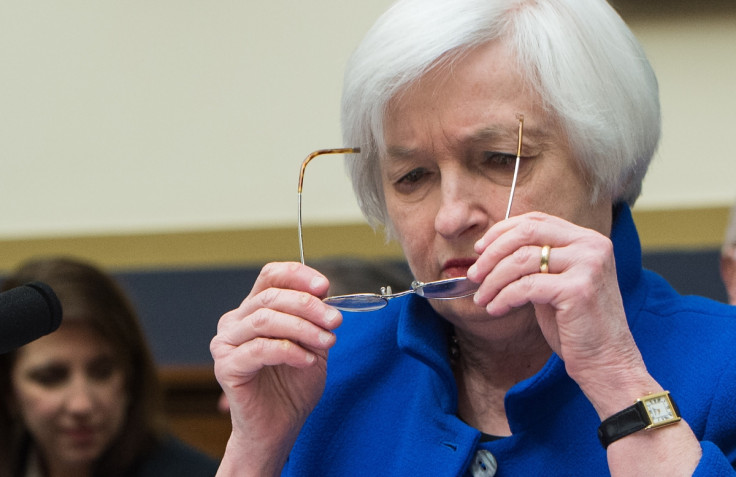Janet Yellen to stick to Fed's interest plans on strong US economy unless global threats intensify

The US economy is growing steadily but could be threatened by global financial turmoil, Federal Reserve chair Janet Yellen has said. Her statement made to US lawmakers signals the Fed may back away from making four gradual interest rate increases in 2016.
After hiking the interest rates for the first time in almost a decade in December, the Fed said it expected to impose four quarter-point interest rate increases in 2016. But Yellen said, in a testimony released ahead of her appearance in front of the US Congress, that if financial threats remain, the central bank might be thrown off that course.
"Financial conditions in the US have recently become less supportive of growth," the testimony read. "These developments, if they prove persistent, could weigh on the outlook for economic activity and the labor market."
The central banker said she expects inflation to gradually rise towards the Fed's target of 2%. In December, consumer price inflation was at 0.7%. She added that the labour market is likely to continue to improve in the US. Yellen was weary of global threats such as low oil prices, falling stocks and concerns about China's economic stability.
The Dow Jones has fallen 6.4% since the start of 2016, while China's Shanghai Composite has lost 16.6% since the trading year kicked off. Low oil prices and the slowdown of China's economy are main concerns for investors.
"Should any of these downside risks materialize, foreign activity and demand for US exports could weaken and financial markets could tighten further," Yellen said.
Questioned
Yellen is also expected to be questioned over the interest rate increase introduced in December 2015. Citing the strength of the US economy, the Federal Reserve decided to increase the record-low US interest rate from 0%-0.25% to 0.25%-0.5%.
However, both the International Monetary Fund and the World Bank have warned of the risks that could come with a premature rate rise. In September, the World Bank said a rate rise could adversely affect emerging economies caused by disruption to capital flows, while the IMF warned in October that an increase in interest rates could prompt another credit crunch in emerging markets.
Augustin Eden, analyst at Accendo Markets, said that Yellen's testimony was "essentially another way of saying 'we raised interest rates before we should have.'"
"Nothing had fundamentally changed in December, but the Fed decided to ignore the fundamentals and move US monetary policy to a place that's less supportive of growth," he said. "It now appears the markets chose to ignore the Fed in January, preferring the fundamentals, and what do you know? The markets were right – they've been reacting to this testimony for the past four weeks."
© Copyright IBTimes 2025. All rights reserved.






















